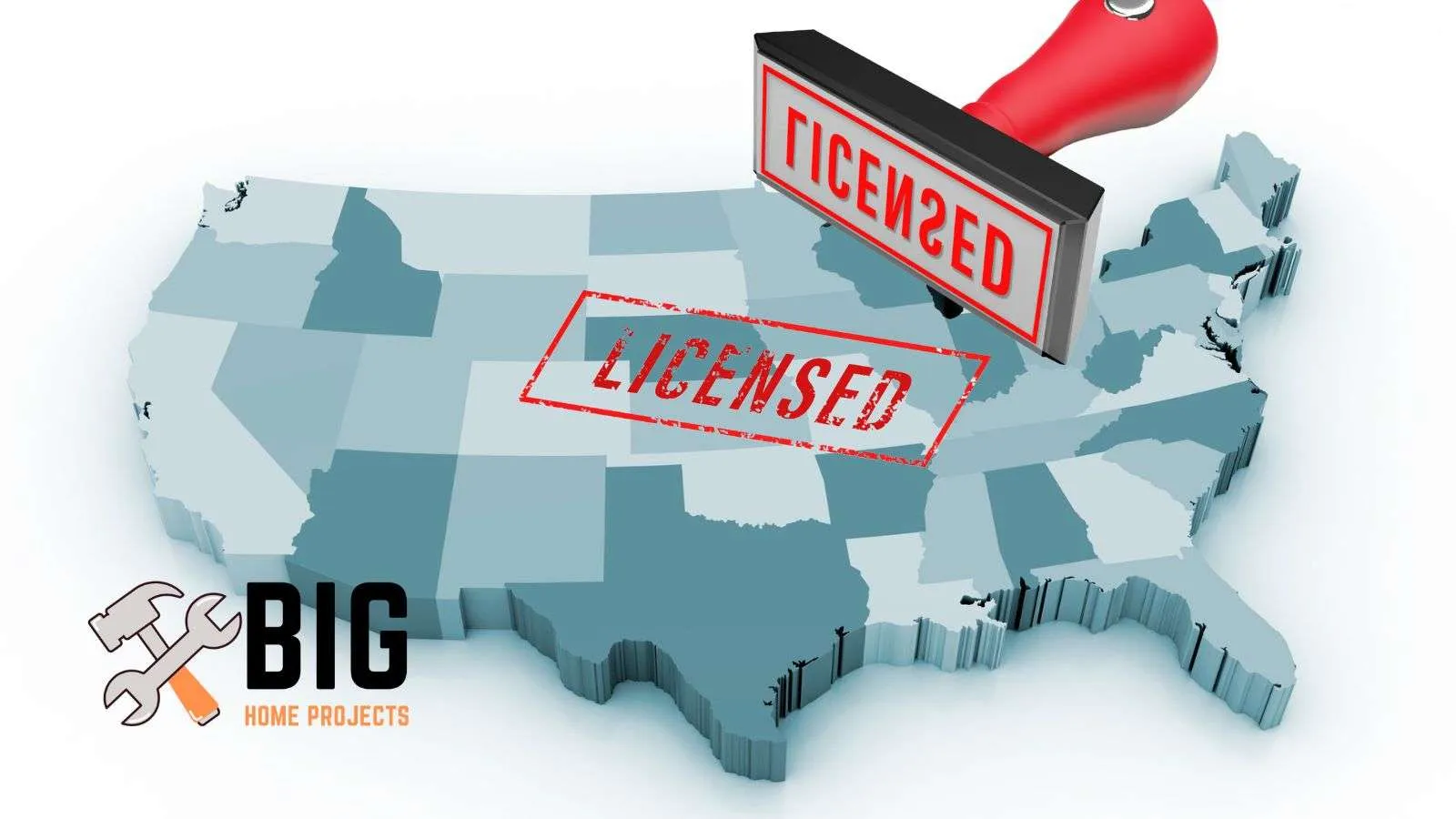Whether you’re a homeowner looking to replace your roof or a contractor searching for a reliable roofer, you may be wondering which states require roofers to be licensed.
Knowing the licensing requirements for roofers in your state can help you make an informed decision when it comes to hiring a professional for the job.
To make it easier for you, we’ve compiled a comprehensive list of the states that require roofers to be licensed.
A comprehensive list of states and roofing license requirements
Why do roofers need to be licensed?
Roofers must be licensed to ensure they have the proper knowledge and skills to do roofing work safely and correctly.
This helps protect the public and homeowners by making sure the roofing work meets building codes and industry standards.
Being licensed also shows that the roofer has passed exams and has the necessary insurance and bonding to perform roofing work.
What are the benefits of having a licensed roofer?
A licensed roofer offers many benefits to the customer.
Firstly, they have the necessary skills and knowledge to perform the job safely and effectively.
Secondly, a license provides assurance that the roofer has passed a certification process and meets the state’s standards for roofing work.
Thirdly, a licensed roofer typically offers warranties for their work, which can provide peace of mind for the homeowner.
A licensed roofer is held to a higher standard and is required to maintain insurance, which protects both the roofer and the homeowner in case of accidents or damage.
What type of contractor license do roofers need?
Roofers typically need a general contractor’s license. This license lets them legally perform roofing work and ensures that they have the necessary skills, knowledge, and experience to complete roofing projects safely and effectively.
The licensing requirements vary by state and sometimes by the municipality, but usually include passing an exam and having the required amount of experience in the roofing industry.
Having a licensed roofer is important because it gives you confidence knowing that the roofing work will be done correctly and meets local building codes and regulations.
Registered, vs. licensed vs. certificate for roofers
A registered, licensed, and certified roofer refers to different qualifications and requirements for a roofing professional.
Registered
This means that the roofing professional has registered with the state or local government agency to conduct business. It doesn’t indicate that the roofer has any specific skills or qualifications.
Licensed
A licensed roofer has met the requirements set by the state or local government agency, including passing exams and demonstrating a minimum level of competency. A license gives a roofer the legal right to perform roofing work within the state or local jurisdiction.
Certified
A certified roofer has received additional training or certifications from a professional organization, such as a roofing product manufacturer, to demonstrate a higher level of expertise and knowledge in specific areas of roofing.
What is the process for getting a roofer license?
The typical process for getting a roofer license usually involves completing an application, passing a trade exam, providing proof of insurance, and paying a fee.
Each state has its own licensing board or agency that sets the requirements for roofer licensing.
This process helps ensure that roofers have the necessary knowledge, skills, and insurance to perform high-quality and safe roofing work.
By requiring a license, the state hopes to protect consumers from contractors who aren’t qualified or who don’t have insurance and to raise the level of professionalism in the roofing business.
What type of examination do roofers need to pass?
Roofers typically need to pass a trade or practical exam to get their roofing license. The exam tests their knowledge and skills in areas related to roofing, such as safety, building codes, and installation techniques.
The exact content of the exam varies depending on the state and local regulations, but it is usually a comprehensive test that covers a range of roofing topics.
The test is meant to make sure that licensed roofers are skilled and knowledgeable professionals who can do their jobs safely and well.
Does a roofer need liability insurance?
Yes, a roofer typically needs liability insurance.
Liability insurance provides protection for the roofer in case they cause any damage to the property or the client’s possessions during the roofing work.
If the roofer does not have liability insurance, the homeowner may be responsible for paying for any damages. It’s always a good idea to ask the roofer for proof of insurance before hiring them.
Is there a national roofer certification program?
No, there is no national roofer certification. Each state has its own licensing requirements for roofers, which may include passing exams and having a certain amount of work experience.
The certification process varies from state to state, so it’s important to check with your state’s licensing board for specific requirements.
This means that a roofer can be licensed in one state but not in another.
The lack of a national certification system is why it’s important to check the licensing and qualifications of a roofer before hiring them.
How often do roofers need to renew their licenses?
In many states, roofing contractors are required to renew their licenses every year. The renewal process typically involves paying a fee and meeting certain continuing education requirements. A contractor’s license is a type of contractor’s license that allows a person to perform construction work on projects with a total cost of less than a certain amount, depending on the state.
Usually, this kind of license is needed for smaller construction jobs like home repairs, remodels, and other similar jobs.
Class C contractors must meet different licensing requirements in each state, but in general, they must pass a trade exam, show proof of insurance and bonding, and pay a fee.
Getting a Class C contractor license shows that the contractor has met certain standards and has the knowledge and experience to do construction work.
Other interesting articles:
